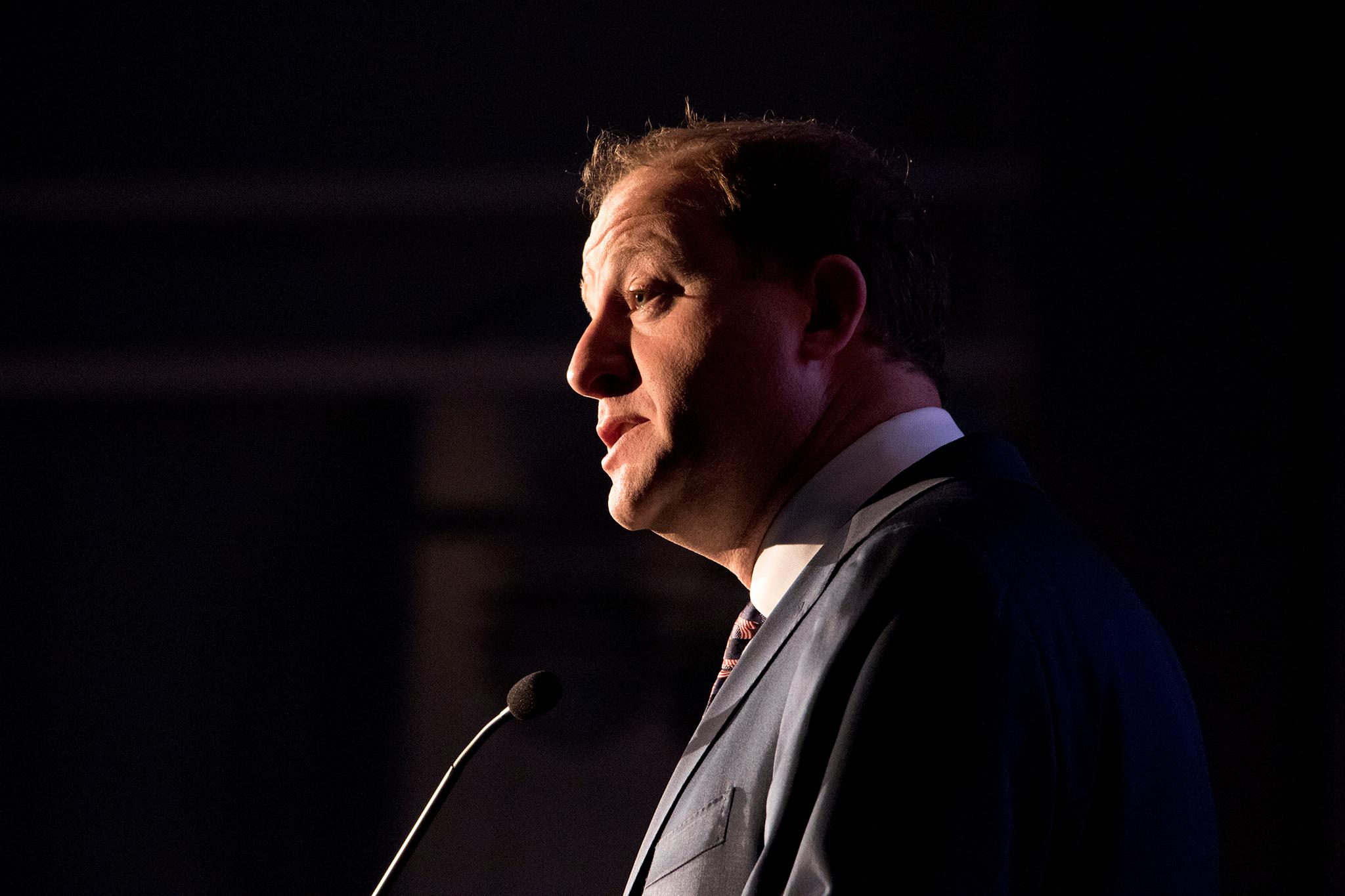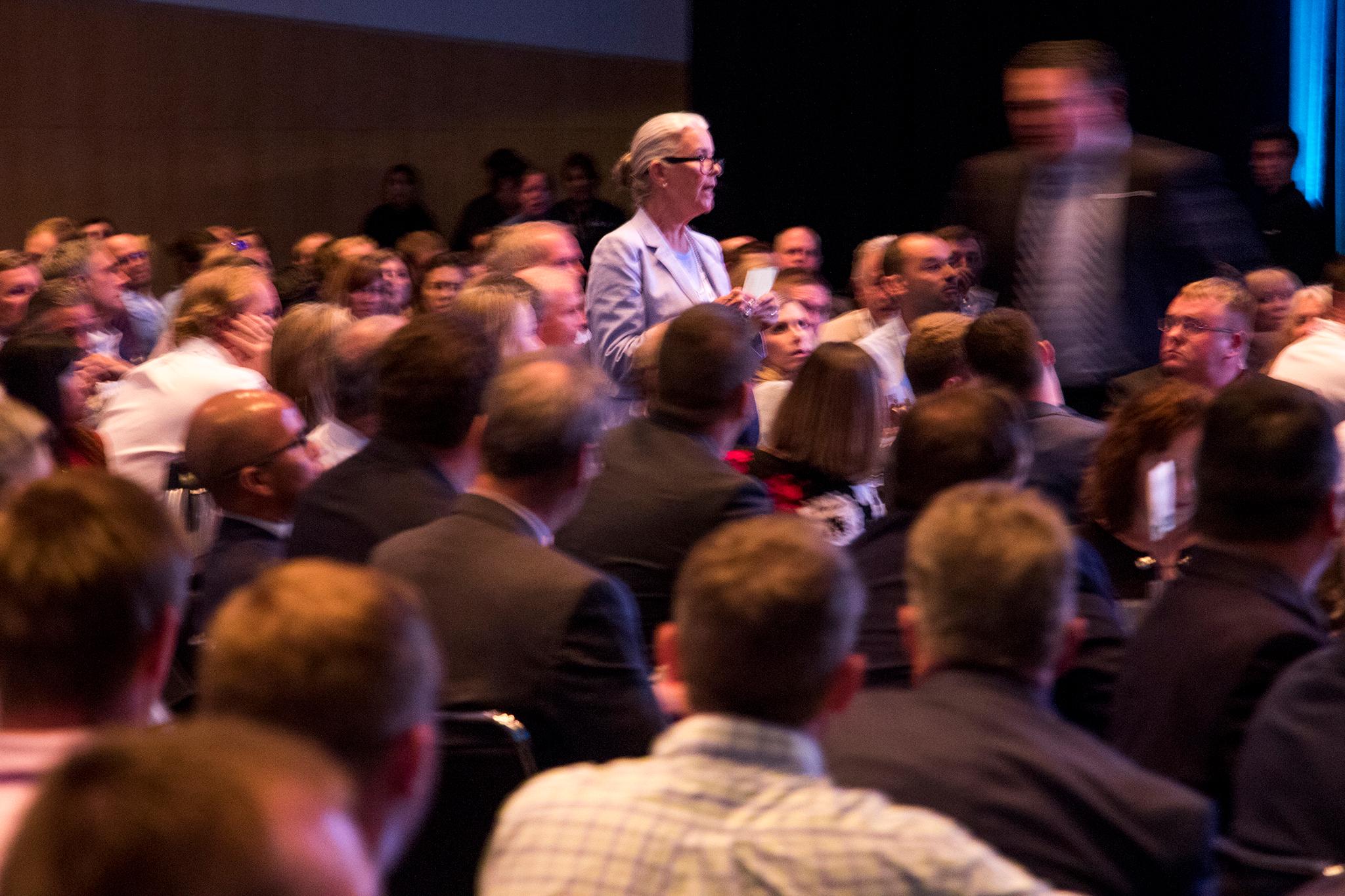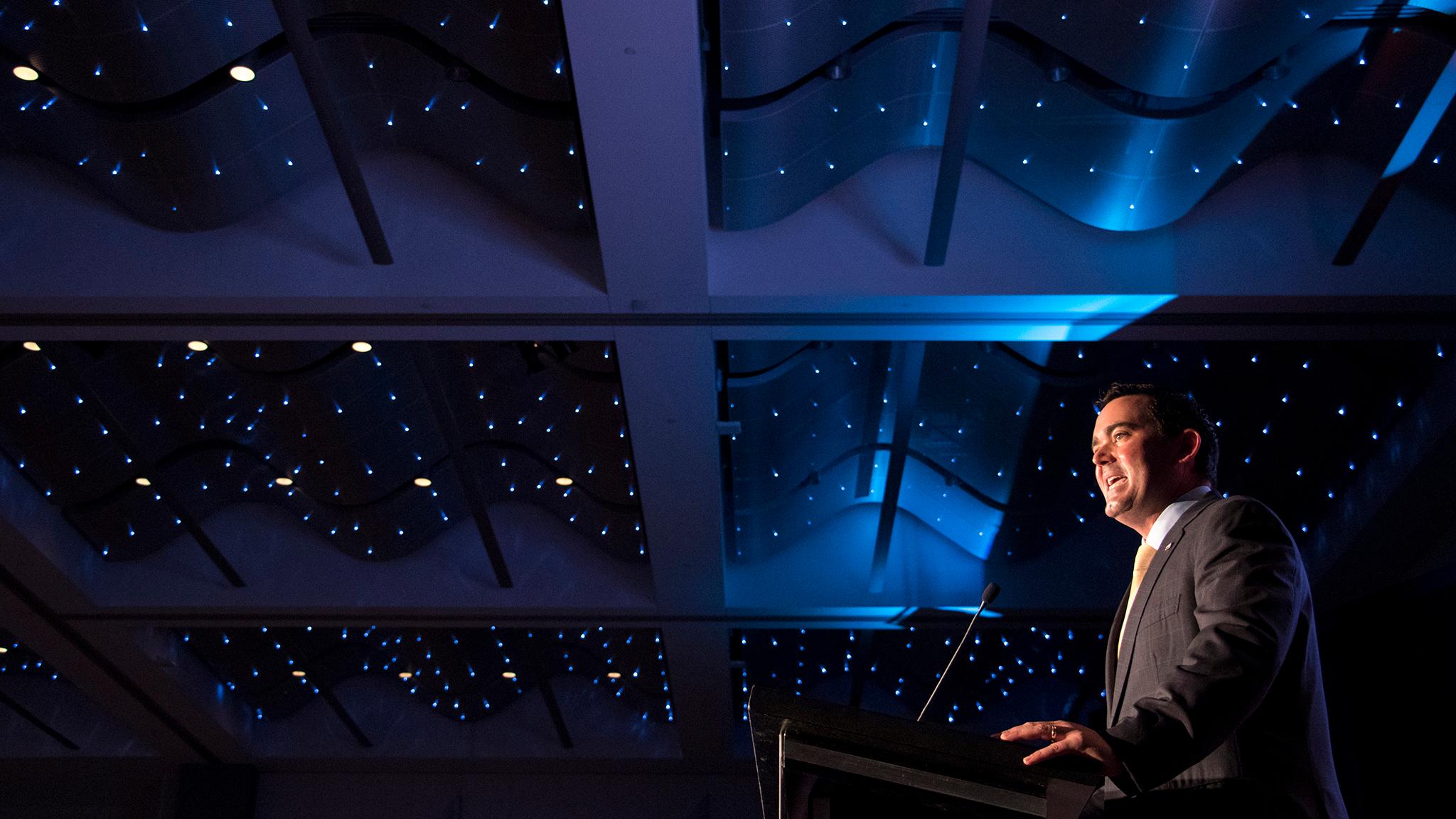Democratic gubernatorial candidate Jared Polis received a warm welcome on Wednesday when he took the lectern to address attendees at the Colorado Oil and Gas Association’s Energy Summit in Denver.
Then the hecklers showed up.
Three people stood up and started shouting questions about fracking at various points while he spoke, earning them an early exit from the two-day conference, which wrapped up Wednesday.
“From the top, ladies and gentleman,” Polis said jokingly after the second heckler started yelling, prompting applause.
Polis and Walker Stapleton — who got a similarly warm reception, without the hecklers — were invited to discuss energy in Colorado, but it was really a chance for them to remind the gas and oil workers and executives in the massive room why they’re opposing Initiative 97. The proposed ballot measure would place serious restrictions on new oil and gas wells by increasing the buffer zone between new wells and occupied structures.
Hundreds of people were in attendance for the sold-out luncheon. COGA President and CEO Dan Haley was quick to point out to them that the hecklers showed just how important it is to have a civil discussion. Many attendees booed the hecklers and applauded Polis for handling the awkward snafu.
“I think what we saw here today is the face of what we’re up against,” Haley said. “We have seen people who will shout at us, who do not want to listen to us, and that is okay.”
While both candidates said they opposed Initiative 97, Stapleton was the more blunt of the two in his assessment.
“This is nothing more than a jobs-killing measure, plain and simple,” Stapleton said.
He said the energy industry is responsible for more than 230,000 jobs and $32 billion in economic impact to the state. He warned that if Democrats take the majority of seats in the General Assembly, similar measures could end up on the governor’s desk.
“Who will be sitting behind that desk will matter to the future of the energy industry in Colorado,” Stapleton said. “It is possible for us to have a responsible energy industry.”

Without mentioning him, Stapleton called out Polis’ plan to have the state run on 100 percent renewable energy by 2040 (Polis didn’t mention this during his remarks). Stapleton said costs related to this plan would end up affecting those who can least afford to pay for it.
“In order to keep energy affordable for all Coloradans, we need to have an all-of-the-above energy policy, that includes both renewable and traditional sources of energy,” Stapleton said. “It’s inconceivable to think we can transition to 100 percent renewable in the near future.”
Polis tried striking a slightly more moderate tone by saying he couldn’t promise everyone that they would agree on every issue. He also mentioned environmentalists, perhaps a nod to his own party. After all, by opposing Initiative 97, he’s rejecting the state party’s official stance to support it.
Polis provided a broader look at some of his other policy plans before delving into energy.
“In spite of the challenges we face, Colorado’s economy today is the envy of the nation,” Polis said. “And if we want to keep it that way, we can’t ignore the role that the oil and gas industry has played in our growth.”
He said he’s approaching these issues as an entrepreneur and businessman.
“Initiative 97 would all but ban fracking in Colorado,” Polis said. “A position that I never supported, no matter how much Walker Stapleton may wish I had.”

Stapleton said that balancing environmental concerns and the need for growing the state's economy are not mutually exclusive goals — that safety for families, clean air, streams and mountains can coexist with a regulated and accountable energy industry.
“We can have it all,” Stapleton said. “Anybody who says differently is presenting you with a false choice.”
Stapleton added that the state needs to protect clean drinking water and protect the ecosystems around the state’s lakes, rivers and streams. He was scheduled to announce his water policy plans afterward in at the Colorado Water Congress.
He said he plans on taking a collaborative approach when it comes to ensuring “a responsible energy industry,” by working with community leaders, industry leaders and environmentalist to continue responsible, regulated and accountable energy development.
Polis mentioned the Firestone explosion last year, a deadly accident involving an oil and gas leak. He said no one is more at risk than the people working in the industry.
“When oil and gas workers providing for their families say they’re afraid that new regulations will cost them jobs, the response can’t be indifference,” Polis said. “But so too, when environmental activists say our existing laws aren’t doing enough to keep Coloradans safe in all instances.”

Polis said Gov. John Hickenlooper — who spoke at the conference on Monday — took "commendable" step towards identifying and fixing pipeline issues that pose safety risks and the state's passing of methane emission restrictions. He said he would continue building on that good work as governor.
"I believe that all parties should be able to come together on reasonable changes that give cities and towns a say in the location of surface activities and better protect homes, schools and hospitals," Polis said.
After Polis concluded, Haley said he felt a resolve to continue his work, even after hearing the interrupting hecklers.
"We are all reasonable people," Haley said. "But we have to understand that there are times when we need to stand up for ourselves and stand up for our industry. And we need to do that this fall."












